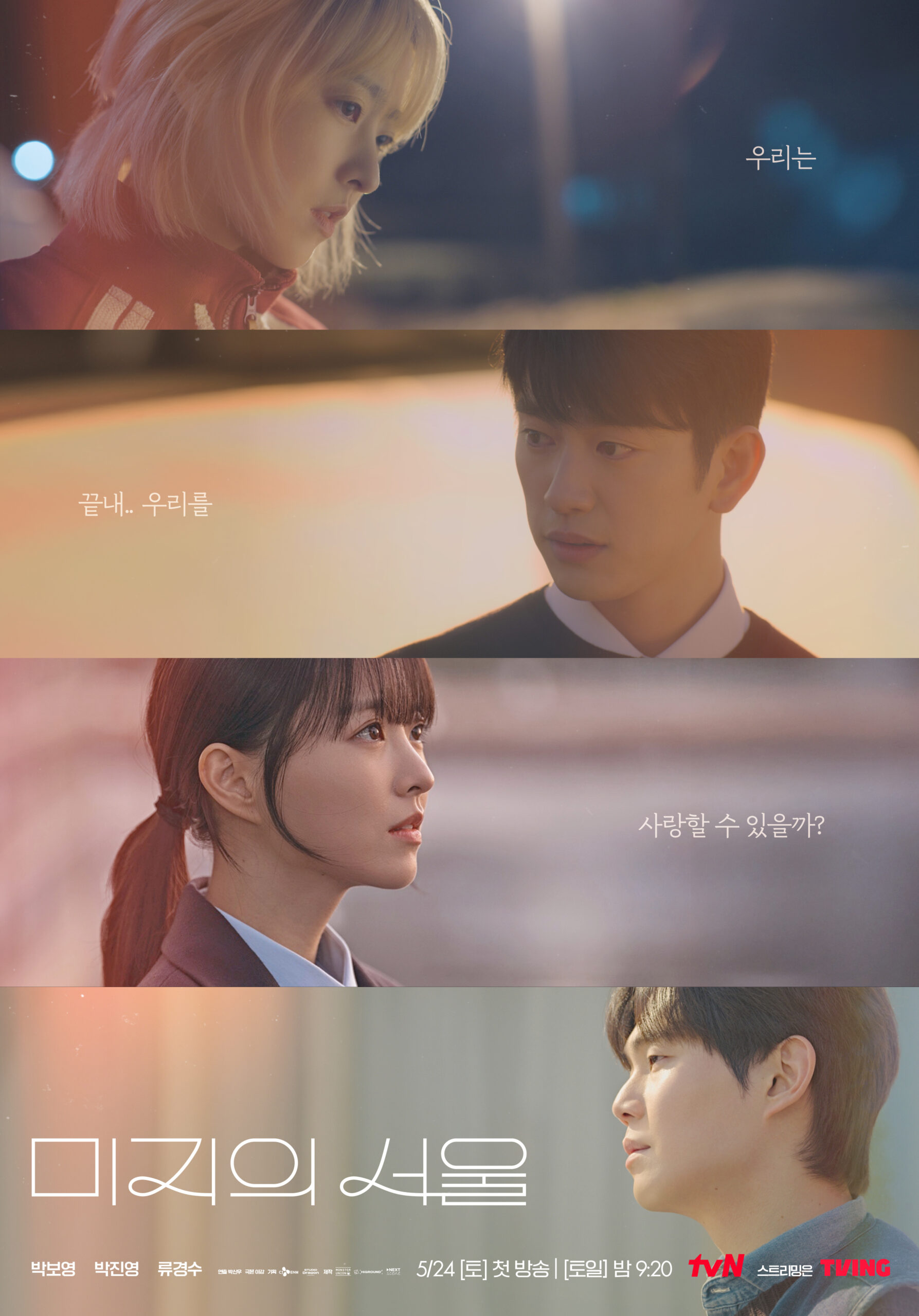
Our Unwritten Seoul (미지의 서울)
Written by Lee Kang & Directed by Park Shin-woo
Developed by Studio Dragon
A Beginning We Didn’t Know We Needed
It’s strange how life sometimes calls us to start over—from nothing—without us even realizing how much we needed it.
There’s something sacred about such a reset. Not the kind born of dramatic fireworks or sharp turns, but the quiet kind. The kind that arrives slowly, insistently, like morning light bleeding through closed blinds. Our Unwritten Seoul is exactly about that kind of beginning.
The title alone is a soft, poignant riddle. At first glance, it names a city. But speak it aloud and another layer unfolds: Soul, unwritten. It’s a wordplay that only reveals its depth if you pause long enough to feel it. In Korean, “Seoul” and “soul” echo each other—an invitation to look beyond the literal, into the tender metaphor beneath.
This drama doesn’t rush. It doesn’t scream for your attention or rely on spectacle. Instead, it offers space—space for reflection, for silence, for what goes unspoken between family, colleagues, and even the two halves of ourselves. Through its unhurried pace, it finds a way to speak softly and still cut deep.
Themes of identity and mental health are approached with rare sincerity. The series doesn’t attempt to explain trauma away or tie pain up with a bow. Instead, it holds these experiences gently, acknowledging how tangled and intimate our wounds can be—especially when they stem from systems that are supposed to nurture us: the workplace, the home, even our own minds. And trust me some of the heath issues they describe related to me as deep.
It would be impossible to speak of the show’s impact without mentioning the delicate artistry of Park Bo-young. Her performance is nothing short of impressive—not because it’s flashy, but because it’s so deeply felt. She embodies four versions of a self: each twin, and each twin pretending to be the other. This alone is a feat of craft, but what’s even more remarkable is her ability to render each identity with its own emotional signature—subtle but unmistakable. You don’t just watch her characters; you begin to know them, even in their silence.
One line in particular stayed with me: “Yesterday is over, tomorrow is far away, today we don’t know yet.” It sounds simple, but within its quiet phrasing lives a kind of truth I keep returning to. How often do we live in the ghost of yesterday or the fantasy of tomorrow, missing the trembling uncertainty—and possibility—of today?
In the end, this production doesn’t offer tidy answers. What it offers instead is something rarer: a soft, unwavering presence. It stands beside you, not as a teacher, but as a fellow traveler. It reminds us that life is often not about rewriting the past or scripting the future, but about being brave enough to begin again—even when we don’t yet know what that beginning means.
And maybe, that’s the truest kind of beginning there is.
Image courtesy of tvN
Comments are closed.